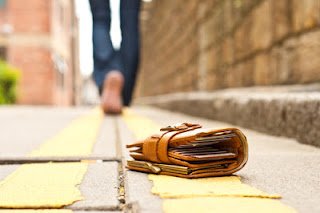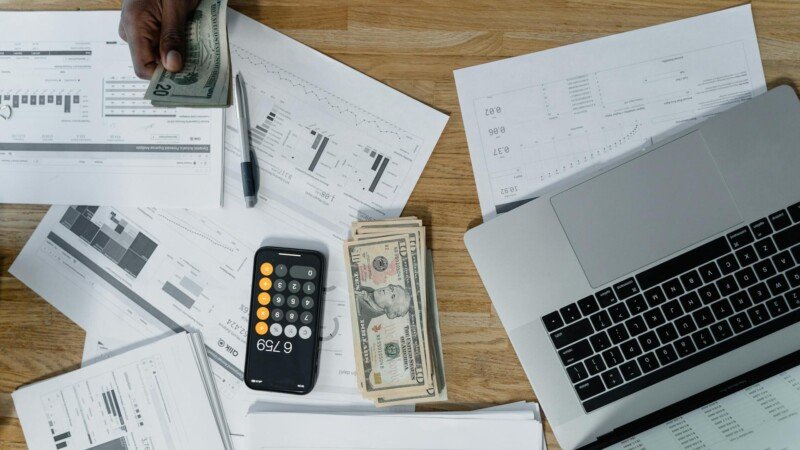Paper or Plastic: The Pros and Cons of Using Cash, Debit, or Credit
It’s an age old question. Should you stuff all of your cash into a mattress and only shell out greenbacks when you make transactions? Should you join the American trend towards being a cashless society? If you do go plastic, should you use credit or debit cards? This decision is not to be made lightly. Here are the pros and cons of each choice:
What’s Good About Cash?
Cash is classic and a lot of its benefits come from its simplicity. There are a variety of reasons why cash is a good way to spend:
- Everyone accepts it. Try to find an American business that doesn’t want your cash. No one will turn you down.
- You always know how much you have. No statements or online banking needed to know exactly how much cash is in your wallet. Cash takes the ambiguity out of spending money.
- You can’t spend more than you have. When you’re out of cash, playtime is over, but that means the bank won’t hit you with fees for overspending.
- Did you know you spend less when you use cash? When you spend cash you see the money leaving your hand and you feel your wallet getting lighter. The fact that you have less money after a purchase is clear and present in your mind as compared to a quick swipe of a card.
Wait, Where’s My Cash?
In spite of all its benefits, cash does offer its own set of risks.
- When it’s gone it’s gone. If someone steals your money or you have a hole in your pocket, then you have no way of getting it back.
- It’s dangerous to carry in large amounts.
- Cash is hard to track. You may know how much you have but how much you had is a different question. Unless you keep every receipt you get or keep track of your transactions, you don’t have a record of your spending.
- It’s cumbersome. Have you ever been in that situation when you are at a checkout counter and the cashier hands you the cash, coins, and your receipt all in one hand? You sit there fumbling with it, like you’ve never used your hands before, while the people behind you are waiting.
The Debate Over Debit
If you are a bit more inclined toward financial responsibility then debit may be a good choice for you. If you can keep track of your spending, a debit card offers several benefits.
- A debit card forces you not to spend more than you can afford…or else. Debit users need to be responsible with their spending to avoid fees.
- It’s like cash but quicker and lighter. Instead of fumbling around with cash. All your money is conveniently on a little card.
I Have to Pay Money Because I Don’t Have Money?
While debit cards are safer and more convenient than cash, they do have some drawbacks.
- Fees. Let’s say you are renting a DVD for $6. If you’re balance is too low that DVD rental could end up costing as much as buying one. Some banks charge almost $40 for an overdraft above $5.
- Holds. If you don’t complete a transaction right away certain merchants can place a block or hold on your card. This especially occurs with gas stations, hotels, and car rentals.
- Even though a debit card is a little more secure than carrying large amounts of cash with you, they can be a problem if there is a security issue. You probably won’t be liable if you become the victim of theft or fraud but when you report it your card and money may be inaccessible for up to a few weeks.
Credit Where Credit is Due
Credit cards represent a very popular payment method and with good reason.
- They are great for emergencies. If you need money and you forgot or ran out of cash, a credit card can get you out of a sticky situation.
- Paying your credit card bill on time every month is one of the simplest ways to build good credit.
- This is probably the most secure payment option. If your credit card gets lost or stolen you can usually take care of the problem with a phone call. It also won’t tie up your money while the issue is being resolved.
Credit Cons
In spite of their popularity, credit cards can cause a lot of problems when used irresponsibly.
- If you fail to pay off your credit card in full you will have to deal with interest. This can start to snowball from month to month and eventually leave you with some serious credit card debt.
- Don’t be fooled by the illusion of minimum payments. These are designed to set you behind on your payments and have them roll over to next month.
- Credit cards are fast and easy. How is this negative? Well, since they are so easy to use you may be more inclined to spend more than you can afford to pay. The swipe of a card doesn’t feel like spending money as much as handing over cash does.
- Credit card spending adds up fast and can quickly lead to burdensome debt. You may find yourself needing assistance from Consolidated Credit or a similar government agency.
With all of these options in mind, consider this. You don’t have to use one of these methods exclusively. Decide what is right for you and your style of spending. What do I have in my wallet? All three. Personally, I find that cash is good to carry in limited amounts for its universal nature, debit cards are useful for the day to day purchases, and when all else fails credit cards are great in a pinch. Which one do you prefer?



